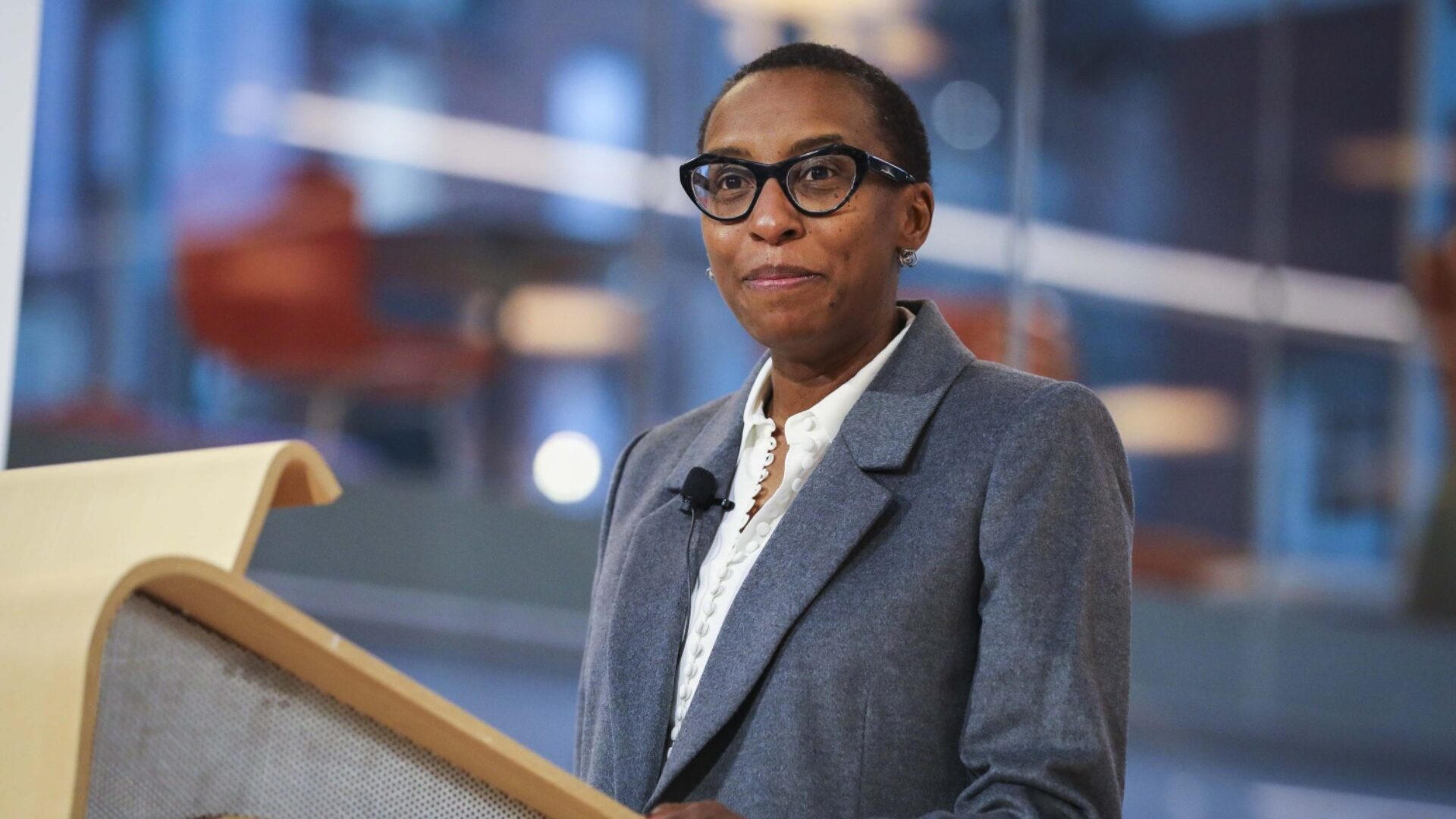
As a Black Harvard student, the turn of events surrounding the contentious resignation of Claudine Gay, Harvard University’s first Black woman president, has demonstrated the dangers of being a Black woman on college campuses.
After President Gay was accused of plagiarism following her testimony at a congressional hearing on antisemitism last December, it was clear that there were few options left to transform Harvard with Gay as president. Watching President Gay navigate dual forces of misogyny and racism, she’s demonstrated the costs of wanting to do change-making work, particularly in historically white institutions. The way Gay was treated by elected officials, Harvard donors, and media outlets will only come to serve the long term understanding of white supremacy and its power in America. There is no longer space to ignore how money and influence play into education with the same levels of ignorance as any other field.
Since this crisis has unfolded, my colleagues and peers have been discussing this non-stop, even through our winter break. We are sick and tired of our voices not being valued in these conversations. We are witnessing, in real time, how a system built on racism, misogyny, and patriarchy can swiftly discard a person or idea that aims to move marginalized voices to the forefront and amplify their goals.
Gay became president at the end of affirmative action, the end of Roe v. Wade and the start of a genocidal war against Palestine. Before she could establish her presence, she was ousted. When Dr. Gay secured the highest seat in American education, she still couldn’t be protected by the interlocking forces of racism and sexism that are so deeply embedded into the fabric of Harvard. Further, she did not—and seemingly could not—take the steps necessary to secure herself as an anti-racist voice on campus when white supremacy made going to Harvard increasingly unsafe for Black, Jewish, Muslim, Palestinian and other marginalized students. White institutions cannot claim or honor equity with one transformative figure, a reinvestment is needed to secure the future of all.
After the criticism from her email, conversations immediately decentered the crisis happening in Gaza and focused on the issue of Gay’s competencies—conversations that indulge in centuries of discrimination against Black women in education. It was clear that her tenure would require more proving her willingness to buy into the vision of Harvard’s stakeholders rather than the students themselves, which began a disconnect between students and administration that has long-term harm.
For Black women and girls worldwide, the persecution of Gay from both within her own institution and externally strikes a deep sense of fear for those of us who are striving to break barriers in political and educational spaces. Furthermore, Gay’s presidency highlighted further Harvard’s inability to divest itself from oppressive world powers. This political moment—both on my campus and worldwide—used misogynoir to distract from the wrongdoings that mattered most. Now Black women are left with less representation in the halls of higher education, knowing the difficult truths of what these elite and trailblazing experiences entail.
It has been emotionally disruptive to watch a Black woman of stature be forcibly removed from her position. Her short tenure was painful in every way, starting with seeing the inequity she faced. From her original email after the early October attack, an onslaught of controversies began. Having already served as Dean of the Faculty of Arts and Sciences, her work as a sociologist, educator, and cultural leader is significant. To watch Gay not fully employ her sociological skills to these crises at Harvard and on the world stage showed how fast Black women can feel the need to become small when they are the only person in the room who looks like them. And, by not taking a stance from the beginning of these conversations, Gay allowed herself to be swayed into a historic moment that will be remembered painfully on all sides.
As Harvard’s leaders continued to fuel an internal conflict against Gay, Americans and worldwide media similarly leaned into what was happening at Harvard instead of what really matters most—the lives lost and resources needed for the oppressed people of Palestine, Sudan, and the Congo. The University has taken minimal resources to invest in fruitful public conversations on these issues on campus or in digital spaces.
President Gay entered a cultural war post Student For Fair Admissions versus Harvard, where the nation’s highest court voted to deny race consciousness in college admissions. Nevertheless, when compelled to ascend to the highest position, many of the nuanced qualities that define her as a great leader become lost in the dogma of unequal systems. Any leader of a school or institution like Harvard is forced to take responsibility for the actions of those who come before them. As the daughter of a Black woman in academia, I am familiar with the microaggressions she’s dealt with in her career, the same ones affecting Dr. Gay.
Where do we go from here? Harvard should acknowledge the wrong doing – the doxxing truck, the lack of protection for students during this time, both physically and emotionally and bring in diverse therapists to help the student community work through this trauma. The storied institution must acknowledge its complicity in supporting an unhealthy environment – empowering extremists in coordinated, aggressive attacks — for both Dr. Gay to flourish as a leader and the student body who have been advocating for her since she took office.
In this 2024 election year, as we cast our votes in an effort to reimagine a new future, we will remember the institutions, systems and people who have championed equity and injustice. We will remember who has kept promises and who seeks to disrupt and disturb progress for selfish and egotistical reasons.
We will reinvest in ourselves and our voices to build the world we want to see – a world in which Dr. Claudine Gay can lead without fear or retribution.